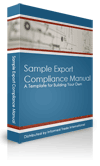In alignment with United Nations Security Council (UNSC), the Dept. of State is implementing an arms embargo against the Central African Republic. A Federal Register Notice published on April 17th, 2014 describes the changes being made to the International Traffic in Arms Regulations to reflect this embargo.
Approvals and licenses will be reviewed by case in regards to the following:
-The International Support Mission to the Central African Republic (MISCA), the UN Integrated Peacebuilding Office in the Central African Republic (BINUCA), and the African Union Regional Task Force (AU-RTF) may obtain defense articles.
-The European Union operation and the French forces deployed in the Central African Republic may obtain defense articles.
-Protective defense articles for non-lethal military equipment, training, and technical.
-Protective gear for UN workers, media, personnel, and humanitarians.
-Small arms for security to protect against poaching, smuggling, and other illicit activities.
Notice can be found at:
http://www.ofr.gov/OFRUpload/OFRData/2014-08781_PI.pdf
Posted on June 14th, 2014 by Katie
Filed under: Uncategorized | Comments Off on Arms Embargo Against Central African Republic
On June 5th, 2014, the BIS a final ruling addressing several Export Administration Regulation (EAR) rules.
The following rules have been changed or clarified:
-References to Foreign Trade Regulations
-EAR’s Unverified List
-EAR’s Commerce Control List
-EAR’s Initial Implementation of Export Control Reform
– Military Vehicles; Vessels of War; Submersible Vessels, Oceanographic Equipment; Related Items; and Auxiliary and Miscellaneous Items That the President Determines No Longer Warrant Control Under the United States Munitions List
-Control of Military Training Equipment, Energetic Materials, Personal Protective Equipment, Shelters, Articles Related to Launch Vehicles, Missiles, Rockets, Military Explosives, and Related Items
More information can be found at:
http://www.ofr.gov/OFRUpload/OFRData/2014-12151_PI.pdf
Posted on June 11th, 2014 by Katie
Filed under: Uncategorized | Comments Off on Six Changes in EAR Rules
The dates and event location for the 9th Annual Export Control Forum have been made public by the BIS. The 9th Annual Export Control Forum will take place February 24th through the 25th in Newport Beach, CA.
The following is to be addressed at the Forum:
-Updates regarding the regulatory process
-Reviews of the Export Compliance
-Relevant recent changes and potential future changes
-Export documentation
-Embargoes and Sanctions
-Census Regulatory Reviews
A special networking reception will take place on the first day of the Forum. Guests are encouraged to attend.
Posted on June 11th, 2014 by Katie
Filed under: Uncategorized | Comments Off on 2014 Export Control Forum
Because of the undefined terminology of “routed transactions,” the BIS has proposed a ruling to clarify the issue. This stems from the potential of miscommunication between the EAR (Export Administration Regulations) and the FTR (Foreign Trade Regulations) who currently both posses differing definitions as to what constitutes “routed transactions.” The proposed solution is to change “routed export transactions” to the defined “Foreign Principal Part Controlled Export Transactions.”
The BIS is accepting comments on the matter until April 7th, 2014.
Posted on June 11th, 2014 by Katie
Filed under: Uncategorized | Comments Off on Definitive interpretation of “Routed Transactions” to be established
Trade agencies in Asia have asked the BIS to remind those exporting to the U.S. to adhere to the local license requirements.
A press release from the BIS was issued on Jan. 2nd of 2014 as a reminder to foreign exporting customers.
The report stresses that:
– U.S. exporters need to note any license requirements or obligations
– U.S. exporters need to provide Export Control Classification Numbers
– copies of licenses and ECCNs need to be requested/obtained
– those failing to provide copies of licenses to be “red flagged.”
Press release found at:
http://www.bis.doc.gov/index.php/component/content/article/9-bis/carousel/615-foreign-import-export-license-requirements-hong-kong-singapore
Posted on June 11th, 2014 by Katie
Filed under: Uncategorized | Comments Off on Foreign License Requirements
What are Routed Export Transactions?
According to the Foreign Trade Regulations, a routed export transactions is “an export transaction in which the foreign principal party in interest (FPPI) authorizes a U. S. agent to facilitate the export of a shipment from the U. S. and to prepare and file electronic export information (EEI).”
This means that when a foreign party is exporting via the U.S., the FPPI has control over the shipment. In a Routed Export Transactions, the item(s) being shipped are not imports to the U.S.; however, they are passing through with authorization from the FPPI to a U.S. agent (such as a license freight forwarder). This U.S. agent is in charge of completing and filing the EEI.
What are the implications of Routed Export Transactions?
Routed Export Transactions come with in inherit risk considering that though the FPPI is in control of the item(s), the USPPI is in charge of the filing. The USPPI’s information (name, address, etc.) is still attached to the shipment being sent abroad.
What are “Foreign Principal Part Controlled Export Transactions?”
Though the current term is still “Routed Export Transactions,” the BIS (Bureau of Industry and Security) has proposed to change the terminology in order to provide a standard definition. If changed, the practice described above would then be addressed as “Foreign Principal Part Controlled Export Transactions.”
Where can I find additional information about Routed Export Transactions?
Resources can be found at:
http://www.census.gov/#
Posted on June 11th, 2014 by Katie
Filed under: Uncategorized | Comments Off on Routed Export Transactions
January 16, 2014
Federal Register notice.
The BIS is allotting until March 17, 2014 for both the general public and Federal agencies to address the 5 year maintaining practice on export records regarding “memoranda, correspondence, contracts, invitations to bid, books of account, financial records, restrictive trade practice or boycott documents and reports.”
The BIS is asking that the following be considered:
-Whether the practice is necessary and practical
-Whether the projected burden, hours, and cost of the practice is accurate and how the burden could be reduced
-Ideas on bettering the content and information being collected
The Federal Register notice found at:
http://www.gpo.gov/fdsys/pkg/FR-2014-01-16/pdf/2014-00707.pdf
Posted on January 21st, 2014 by admin
Filed under: ITAR | Comments Off on 5 year maintaining practice on export records
As issued by the Dept. of Commerce Federal Register in their original notice, the following is to be regarded in the first two Final Rules of the ECR implementation process effective Oct. 15, 2013:
-Added “structure and related provisions to control munitions items that the President has determined no longer warrant export control on the USML on the CCL.”
– New ‘600 series’ Export Control Classification Number on items moving from the USML to the CCL.
Concurrent final rules:
– Term “specially designed” given common definition
– Observation of transition and implementation process on good between the USML and CCL.
– Bureau of Industry and Security license validity defaulted to 4 years
– Updated ITAR Destination Control Statement
– Creation and regulation of Export Admin. Regulation Country Groups
The Final Ruling by the Dept. of State found at:
http://www.gpo.gov/fdsys/pkg/FR-2013-04-16/pdf/2013-08351.pdf
The Final Ruling by the Dept. of Commerce found at:
http://www.gpo.gov/fdsys/pkg/FR-2013-04-16/pdf/2013-08352.pdf
Additional information regarding ECR found at:
http://export.gov/ECR/
Posted on January 21st, 2014 by admin
Filed under: ITAR | Comments Off on Final Rules of the ECR implementation process
The phrase “ITAR Compliance” gets thrown around a lot by defense contractors, ITAR exporters and other regulated businesses, but they’re not always using the same definitions. If your exports are controlled by the Department of State and are subject to ITAR regulations (meaning that your product, service, or technology is listed on the United States Munitions List, USML), here’s something to be aware of:
The International Traffic in Arms Regulations do not list a definition for the term ITAR compliance, nor do they list one for ITAR certified.
The term ITAR compliance is loosely used by Federal employees to denote a company that is registered with the DDTC, is aware of the ITAR export regulations that apply to their products and services, and makes a continuing effort to abide by those regulations. Essentially, this is a self-certifying process.
If we’re self-certifying, when does ITAR compliance matter?
Your ongoing effort to remain in compliance with the ITAR will be a huge mitigating factor in the event of an audit. A company actively striving to operate within regulations is viewed in a different light than one that is unaware of, or unwilling to follow the rules. These audits happen and your level of ITAR compliance will factor into the final outcome – whether it’s a green light, a general warning, fine, or total revocation of your export privileges.
Posted on April 22nd, 2012 by admin
Filed under: ITAR | Comments Off on ITAR Compliance
Last Thursday the Department of State issued a press release detailing charges and penalties levied against Alpine Aerospace Corporation and TS Trade Tech Incorporated of New Jersey. Both companies share common ownership and provide replacement parts to the aerospace industry.
Violations:
- Failure to obtain proper export licenses
- Improper citation of existing licenses
- Failure to obtain non-transfer and end use certifications
Penalties:
- Alpine civil penalty: $30,000
- TS Trade Tech Civil penalty: $20,000
An interesting note – the civil penalites will be suspeneded on the condition that they are used to bolster compliance measures for the companies.
Posted on April 9th, 2012 by admin
Filed under: ITAR, News | Comments Off on $50,000 in ITAR fines


